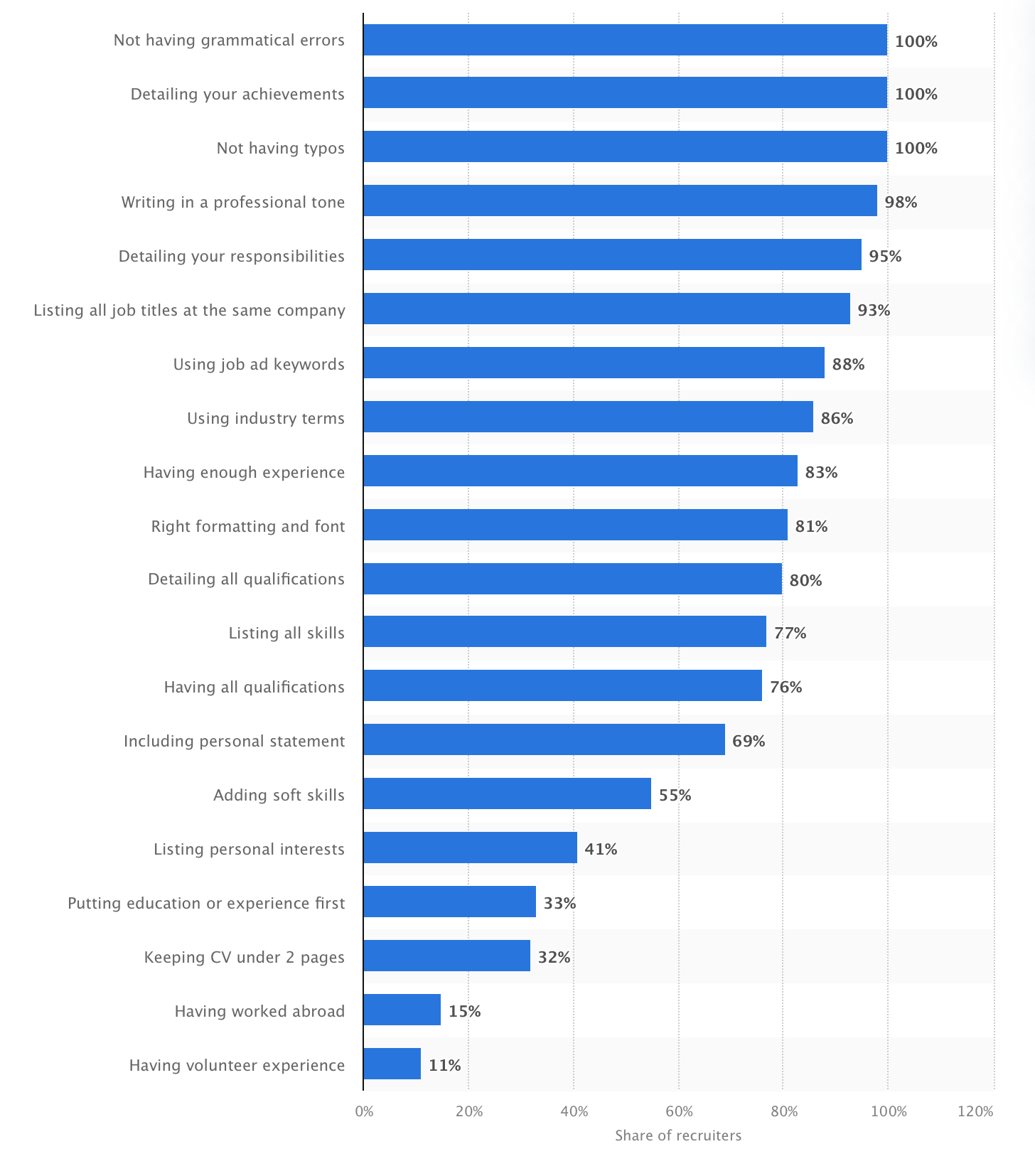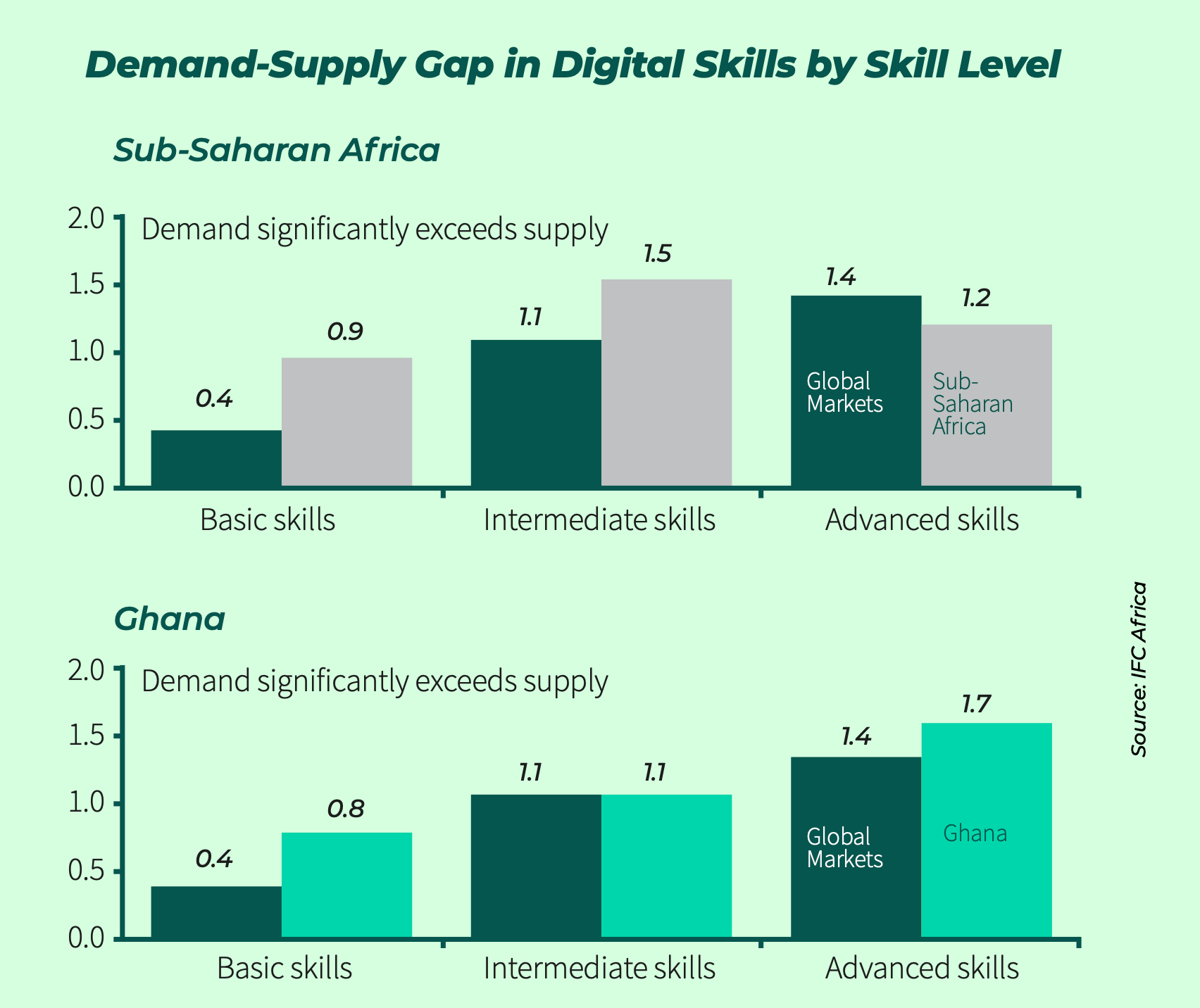Job-Seekers, Here Are Red Flags That Stop Recruiters from Hiring You
by Tom-Chris Emewulu · Career advice
Fri, 17 Aug 2018 · 3 minute read
Share

Everybody knows that getting a rejection email for a job application really sucks. But in reality, about 98% of job seekers are eliminated at the initial resume screening. Only 2% of job candidates make it to an interview.
Unfortunately, recruiters don't usually give candidates absolute, meaningful feedback on why they were rejected. To help you catch the employer's “bullseye” in your next job application, avoid these rookie mistakes I see job seekers make time and time again.
This series started with an insight into the Biggest Job Application Mistakes You Must Avoid at All Costs, followed by 5 Distinguishing Traits Employers look for in a Prospective New Hire. In this concluding part, we shall review six cardinal red flags recruiters look for in a job candidate. If you are currently looking for a job, well my friend, it is your lucky day! I am about to show you the cheat sheet hiring managers use for recruiting.
Six red flags that stop recruiters from hiring you:
1. Inconsistencies and Lies
The first red flag for a hiring manager is a discrepancy in a candidate’s resume. This could be in the form of regular gaps in employment history, lies about past employers, or an embellished job title.
In today’s competitive job market, it might be incredibly tempting to embellish your resume. If this is you, think again! Any form of inaccuracies on your resume will definitely come back to bite you. When a recruiter determines there is a discrepancy in your copy (whether online or offline), that’s game over.
The worst-case scenario is when you pulled a “Mike Ross” and eventually got the job. The day the truth materializes, the public humiliation will paint a black shade over your career prospects, permanently.
Nevertheless, if the discrepancy is in the form of employment gaps, the solution may be to adjust your resume. Use your cover letter or summary statement to explain any gaps the hiring manager might need clarity on. Be sure to keep your summary statement within 100 words.
Job Hopping
While there are varied opinions on this, profiles that show frequent job hopping is a big red flag to most recruiters. In fact, talent professionals argue that resumes filled with short-term gigs indicate the candidate lacks commitment, is poor at building relationships, or burns out quickly.
The recruitment process is often time-consuming and expensive. And so, losing an employee after a year means wasting time and money on training and development. "The employee leaves before that investment pays off. Plus, many recruiters may assume the employee didn't have time to learn much at a one-year job," says Jeanne Meister, HR Partner, Future Workplace.
Historically, there are few available data on how long an average worker should stay in a job in Africa. Nevertheless, career experts recommend that in an ideal case, you should try to stay at each job for a minimum of 3 years.
In the words of Amanda Augustine, a career advice expert for TopResume, "No matter how badly you want to leave your job or move onto something bigger and better, you don't want to be branded a serial job-hopper."
That said, if you are faced with the job-hopping or employment gap dilemma, use the functional resume strategy to put a positive spin on your copy. Optimize your template to focus on your skills, what you have achieved, and your abilities rather than time spent in or out of jobs. Get resume re-writing service from our experts.

Share of recruitment consultants that find the following aspects of a CV to be important, according to Statista
Lack of Professionalism Online
According to Recruiterbox, 43% of employers use social networking sites to research job candidates. Also, 51% of employers who check a candidate’s social media profiles have found content that disqualifies a candidate. One survey similar found that 70% of employers use social media to look for red flags on a candidate.
Here are four things your online presence shows hiring managers:
- Stats and results: Factual data referencing accomplishments like growth percentages or direct bookings.
- Attention to detail and seriousness: A complete LinkedIn profile shows that the candidate is a detail-oriented and serious job seeker.
- Recommendations from former employers and peers: Research shows that the inclusion of testimonials may share more about a candidate’s performance and personality.
- Community involvement: Participating actively in online groups or volunteering suggests that a candidate has more interest and solid connections with a particular industry or community.
With this understanding, you need to be circumspect with your online interactions. Your digital footprint provides deep insight into who you are, what you care about, and what you bring to the table. Consequently, any serious-minded job seeker will do the legwork of putting a good front on his or her digital platforms.
Use the tips in this article to adjust your digital presence, create a compelling value proposition, and move your career prospects further, and faster.
Ambiguous Language During Interview Questions or in Your Document
It is common knowledge among recruiters (and supported by research) that you can evaluate the potential performance of candidates based on their speech. The majority of recruiters listen/look out for the following magic, or the lack thereof when evaluating candidates:
- Pronoun: “I” and “me” - studies show that low and average performers use about 400% more second-person pronouns like you, and your and about 90% more third-person pronouns like he, she, and they than high performers.
- Tense: workplace experience stories told in the past tense - studies show that low and average performers use the present tense 120% more and the future tense 70% more.
- Voice: usage of active voice - studies show that low and average performers often use the passive voice 40%–50% more than high performers.
The use of vague languages, such as “familiar with” or “participated in,” could imply the candidate didn’t actually work on the project or they simply assisted in some way, courtesy of LinkedIn research.
Unprofessional Profile Photo
There's an old and probably overused saying among marketers that people hear what they see. Inappropriate and unprofessional photos on your social media touchpoints can raise a red flag to recruiters. They often portray you in an unprofessional light.
So, before you share your next twerk video or Instagram photo with your boobs up in the air, your pants sagging or your drunken eyes looking at the world like “Klint Da Drunk” think of the potential career-limiting implications of such graphics.
A job seeker is far more likely to make an impression with employers if she or he has a professional, high-quality photo. "The solution is simple: Get dressed up and hire a good photographer," says Ismael Wrixen, CEO, of FE International.
Mistakes and Typos in Your Resume and Cover Letter
In my journey to find the top 10% of entry-level job seekers and match them to jobs that have prospects for career progression, personal development, and economic prosperity, I have read thousands of resumes. I have seen the good, the bad, and the very ugly ones.
A CareerBuilder survey found that 58% of all resumes have a typo of some form. Resumes with grammatical errors, spelling mistakes, or poor formatting indicate that you lack attention to detail. While some people may want to argue that it is human to make mistakes, many hiring managers have a very strong opinion about this matter; almost to the point, and often to the point, that one single typo is an automatic veto.
Why? Because how you do anything is how you do everything, the logic goes: if a job candidate does not pay attention in getting his or her tenses right, where else will he or she show the same lack of discipline?
Yet, attention to detail is one of the all-time proxies for job qualifications many of us highlight in our resumes. Therefore, if you dare to tell the recruiter that you are “an excellent communicator with great attention to detail,” then you better bring that A-game in your application package. Quite frankly, if you don't, well, it’s your fault for being so sloppy and careless – sorry!

We teach digital skills and attention to detail at ReadyforWork career accelerator.
To avoid shooting yourself in the foot before you even start competing for the hiring manager’s attention, please use a grammar checker like Grammarly to proofread your stuff and make necessary adjustments.
Wrapping Up
There you have it. From pre-screen to post-hire, the knowledge of what hiring managers look for and what they avoid in a candidate is now at your disposal. As the job market becomes increasingly tighter and recruiters continually look for smarter and more sophisticated candidates, the least you can do is prop yourself up with all the secrets I’ve shared with you in this article.
Observe them, commit them to memory, and when you have successfully scaled through the recruitment process, remember to pay it forward. All the best!
Learn new digital skills for the future of work. Get ReadyforWork.

